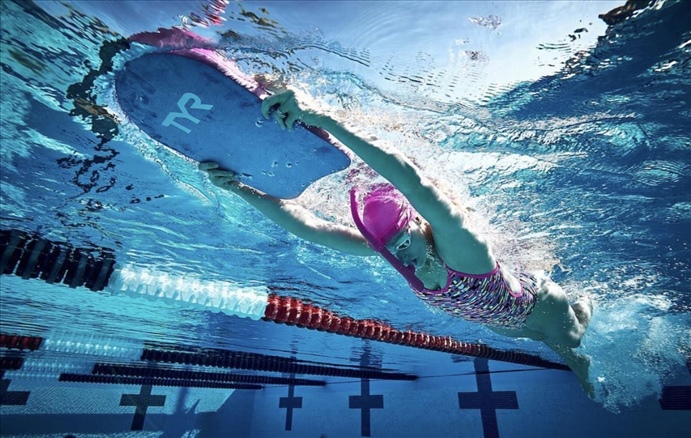The Difference Between A Kick Pull & A Standard Kickboard
January 22, 2024


On a pool deck full of different training equipment, it’s important to know the function of each piece of gear and how your stroke can benefit from it. While a lot of brands come out with similar products and accessories options, each has their own unique twist. Similarly, traditional gear is constantly evolving with new technology. Because of this, it can be hard to keep up with what’s new and now.
In this guide, we will quickly touch on the key differences between a traditional kickboard and a kick pull and the benefits of each.
One of the newest pieces of swim gear to hit the market in the past few years has been the kick pull. Different from the traditional kickboard, the kick pull can be used as both a kickboard and a pull buoy. Not only does this two-in-one equipment make for easy transitions between sets, it’s also more convenient when packing your swim bag for longer trips.
A kick pull is often half the size of a regular kickboard, and is slightly curved so that it can easily fit between your legs when used in a pull set. Because it is smaller, it offers less buoyancy when kicking, but in return causes less strain on the shoulders during longer sets. The minimal floatation during kick sets allows you to kick more naturally and frequently, as you would in your normal stroke, but requires more leg strength to keep you moving seamlessly on top of the water.
Because this is used as both kicking and pulling gear, it is thinner and longer than your standard buoy. Using a kick pull in a pulling set would require better body positioning and gives less room for movement in the legs.
Overall, a kick pull is better suited for a more advanced swimmer, as it offers less support during your swim.
On the flip side, a standard kickboard is wider, longer and more buoyant. Because of this, it helps to keep you afloat and on top of the water, allowing you to focus more on your kick and less on your body positioning. This makes it a great option for a swimmer wanting to perfect their kicking technique and build muscle in the legs. Due to it’s size, and the way your arms are extended, it can tend to wear on the shoulders during a longer set.
Overall a traditional kickboard is a better option for beginners learning the basics, and wanting added buoyance during their swim.

